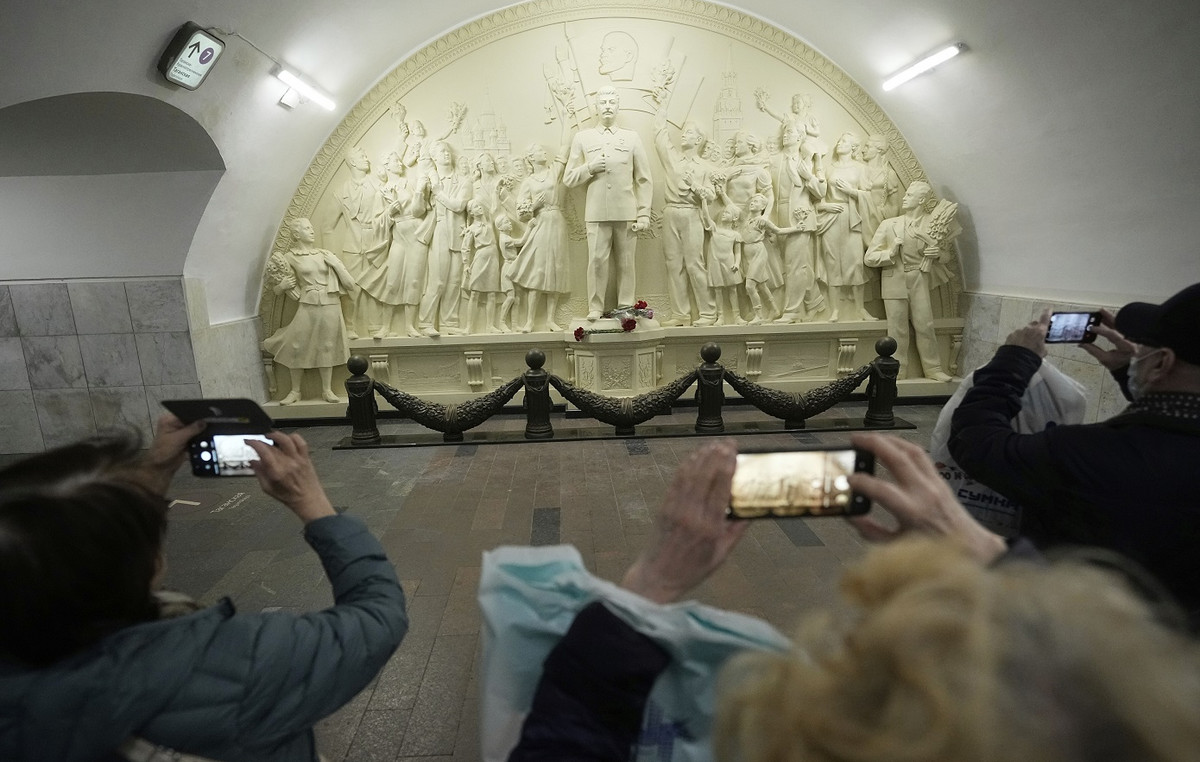South African voters go to the polls this Wednesday (29) in the most important election in the country since Apartheid. In the dispute, the ruling party, the African National Congress (ANC), risks losing its parliamentary majority for the first since Nelson Mandela's 1994 liberation movement brought him to power.
Polls carried out in the days leading up to the elections suggested that the ANC's vote percentage would be around 40%, which would force the party to have to form a coalition with its rivals — and could expose President Cyril Ramaphosa to a challenge from leadership.
A result of less than 50% of the vote means that the ANC would have to make a deal with other smaller groups to govern the country. This would be the first time this scenario has happened since the party came to leadership in South Africa 30 years ago, after Apartheid.
In 2019, the ANC received 57.5% of the vote.
However, widespread dissatisfaction over power cuts, unemployment and corruption are some of the factors that threaten to end the dominance of the African National Congress.
The current ruling party has not disclosed how it would approach a post-election scenario involving a coalition or some other form of alliance.
Most unpredictable elections of the post-Apartheid era
The last update of the survey carried out by the South African group Social Research Foundation was on Tuesday (27). The poll estimated ANC support at 42.2%.
Support for the largest opposition party, the Democratic Alliance (DA), stood at 21.6%, while support for former president Jacob Zuma's new party uMkhonto we Sizwe (MK) was estimated at 12.4%. Finally, support for the Economic Freedom Fighters Party (EFF) was estimated at 10.8%.
The follow-up survey began with a base sample of around 2,000 respondents, after which it incorporated between 200 and 300 new respondents daily. The margin of error is just over 2%.
The Social Research Foundation said it observed an unprecedented degree of uncertainty among respondents about which party to support, which resulted in a small percentage of voters switching between the available options.
Furthermore, a survey released earlier this week by the organization Afrobarometer suggested that a third of voters were undecided, making this Wednesday's vote (29) the most unpredictable in South Africa's democratic history.
Result could mean the end of ANC dominance
Peter Vale, a researcher at the University of Johannesburg, South Africa's largest city, says that despite corruption and the mobilization of cadres from the country's current ruling party, the ANC has built a competent public service over the last 30 years.
However, during the period, the party abandoned the legacy of liberating the black majority from white rulers, which the Apartheid system oppressed and deprived of many basic human rights.
Apartheid was a political regime of racial segregation that existed in South Africa for almost five decades, from 1948 to 1994.
In the first years of government, the ANC began to reverse inequalities — bringing electricity, water and decent housing to millions of people.
But corruption and inefficiency have eroded that legacy.
State energy supplier Eskom's worn-out coal-fired power stations have caused frequent blackouts, while roads, sewage treatment plants and schools are poorly managed. About a third of South Africans are unemployed.
“They (voters) need to break the hegemony of the African National Congress. When someone monopolizes decisions, monopolizes jobs and monopolizes everything, that is what needs to be broken in these elections,” said political analyst Sandile Swana.
With information from Reuters.
Source: CNN Brasil
Bruce Belcher is a seasoned author with over 5 years of experience in world news. He writes for online news websites and provides in-depth analysis on the world stock market. Bruce is known for his insightful perspectives and commitment to keeping the public informed.







